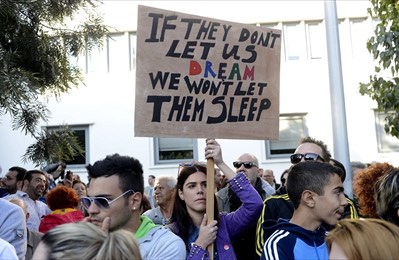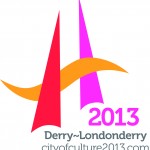DCMS has launched the call for applications for the ECOC in 2023 in the UK.
Details here
Good luck to the candidates (Dundee, Leeds and Milton Keynes at the moment)
The UK hosts a European Capital of Culture (ECOC) in 2023. Under the rules DCMS needs to start the competition before December 2016. This gives the competing cities time to finalize their bids for shortlisting in autumn 2017. The final selection will be in 2018. It is now mid September, time is running out.
As the current chair of the selection panel for ECOCs I know that cities need time, over four years, to develop their programme. They also need clarity in preparing their bids.
Several UK cities are preparing bids: Dundee, Leeds, Milton Keynes (and possibly Bristol). They are investing time, money and more importantly, building up momentum in their cities and networks with their citizens, businesses and cultural sectors.
No recent ECOC has been able to prepare a successful bid in less than two years. In my five years on the panel I’ve seen over 100 bid-books and city presentations and it is easy to spot those which are underprepared; they do not get shortlisted let alone selected.
So what’s the problem? DCMS is not indicating when it will start the formal competition on behalf of the European Commission. It will have all the paperwork and the rules (they are the same for each country). Why not? Simple, I guess, DCMS look like a rabbit stuck in the Brexit car headlights.
There is no reason for DCMS not to start the competition. The UK, as the Prime Minister frequently says, is a full member of the European Union until it leaves. During that time it will perform as a full member with all the rights and responsibilities that membership entails. It is both legally and morally the correct stance.
The selection of the ECOC in the UK for 2023 will take place in 2017 and 2018: when the UK will be still be a member of the EU. The ECOC “Decision”, the legal document which governs the ECOC programme, was approved by the UK along with 27 other culture ministries and the European Parliament and it requires the competition to start.
What are the risks to DCMS to starting the competition?
Financial? Not really, the EU only contributes €1.5m to an ECOC and that is conditional. An ECOC’s programme budget is likely to be over £50-£60m over 6 years found from city, regional, lottery and business sources. This is twice the amount that Hull have successfully raised for their UK City of Culture programme in 2017. The UK government could easily replace the €1.5m in 2023.
The main impact of a delay will be to the candidates. They need to ensure funding lines and commitments and discuss project plans with cultural partners across Europe (and indeed globally).
Reputation? An ECOC is required to demonstrate a “European Dimension”. This is cultural not political. ECOCs show and share the diversity of cultures in Europe to their own citizens and to visitors. Most recent ECOCs have over 70% of their events with international partners and these are not limited to EU countries. Even the ardent brexiters said that “Europe” is a cultural area of which the UK is a part and it is distinct from the political entity of the European Union.
Split process? Perhaps. Unlike the UK City of Culture programme an ECOC is subject to a quality control process by a monitoring panel (in effect the selection panel). This process may be interrupted but can easily be adapted.
Brexit may mean Brexit but no-one knows what that will entail. The referendum indicated a departure but not a destination. Under the current Decision it is possible for non EU members to host an ECOC: but only closely defined categories: candidates and potential candidates and, soon, EEA members. There are calls for the UK to continue to be part of the Erasmus scheme, of the EU research programmes and of the cultural programmes. If the UK stays in the EU cultural programme it could be eligible to host the ECOC in 2023. A very small element in the whole Art50 process. Staying in the culture and education programmes does not affect the hallowed sovereignty of the brexiters as these areas are not under EU competency. The UK has always had control
And if not, if it is an exceedingly hard Brexit? Well then DCMS could simply introduce a new “UK Capital of International Culture” in 2023 and rebrand the ECOC title to fit between the UK Cities of Culture planned for 2021 and 2025. The successful ECOC city selected in 2018 continues with its implementation, same programme, same objectives with only a minor change to its logo.
So two scenarios: the post Art50 EU-UK deal enables the European Capital of Culture process to continue as normal (clearly the overwhelmingly preferred option) or the UK simply rebrands the title. Neither prevents DCMS from starting the competition.
A win-win. But DCMS need to give a firm green light now.
Steve Green
Chair, European Capitals of Culture Selection Panel


